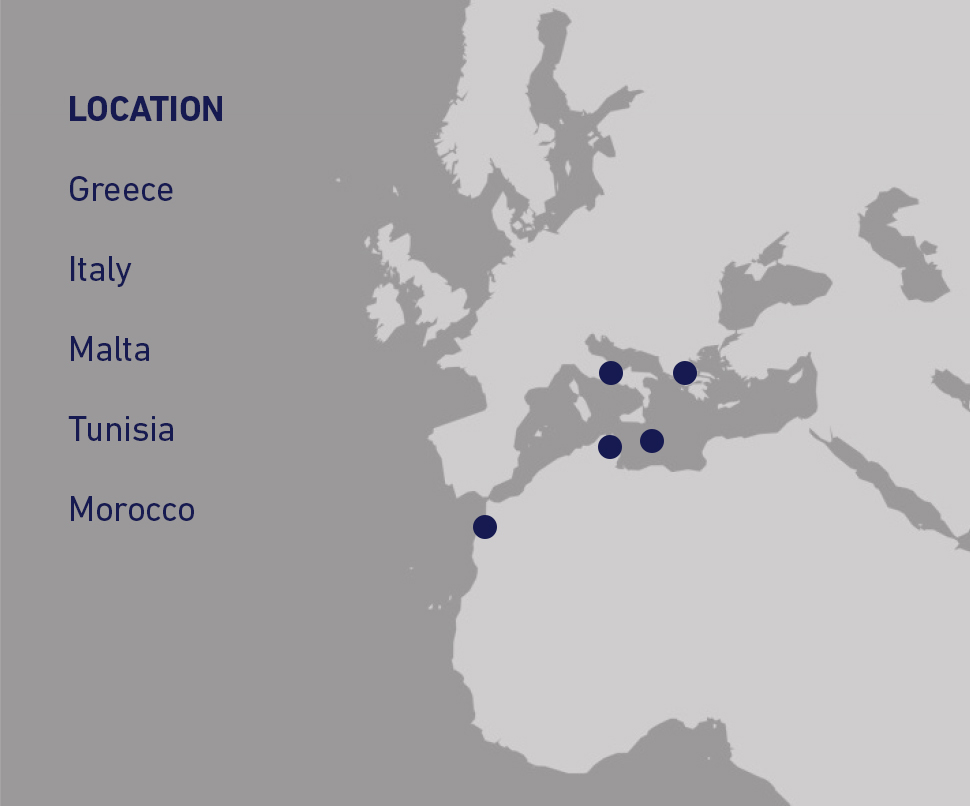
MAST – Mediterranean Alliance for Sustainable Tourism post COVID
Context and objectives
According to the World Tourism Organization (UNWTO), tourism is one of the sectors most affected by the COVID-19 pandemic. International tourist arrivals in the first quarter of 2020 were a fraction of what they were in 2019, and prospects for the last part of 2020 and for 2021 were downgraded several times in view of the high level of uncertainty of the pandemic evolution. This marks an end to a 10-year period of sustained growth since the 2009 financial crisis. Southern Mediterranean countries suffered the largest reduction in tourist arrivals at 72%, with a 66% decline in Europe and 57% in Africa and the Middle East.
However, the current pause in global travel can be used to develop new models and approaches to ensure a resilient and sustainable tourism recovery that supports communities, creates jobs, promotes culture and protects heritage.
The MAST project aims to reboot tourism by introducing new business ideas, marketing and communication strategies, and renewed dialogue among MSMEs and public authorities.
Location

Key figures
Duration:
9 months
Countries:
5
Total cost:
€280,000
Promoter
Key partners
Regional Observatory of Agriculture and Development (AORADRSC) (Morocco)
Beneficiaries
- Tourism entrepreneurs and aspiring entrepreneurs.
- Job seekers and employers of the tourism sector.
- Public authorities, local governments, NGOs, training institutions and other entities for the promotion of sustainable tourism.
Key actions
State of art analysis of strengths and weaknesses of the region, with KPIs to monitor the project and its impact.
Training and advanced knowledge resources for entrepreneurs and MSMEs to promote ways of sustainable business activity, including social entrepreneurship, contributing to progress and innovation in employment in the tourism sector. Training modules developed by higher education institutions will cover, among other topics, business and management, entrepreneurship and sustainability strategies, rural tourism, and specific sanitary measures in response to the pandemic.
Business planning and coaching services to support MSMEs and aspiring entrepreneurs to adopt inclusive business practices and adjust to changing business conditions in response to the economic and health crisis.
Increased employability in the tourism sector via a specific platform to allow the match of skills of job seekers and employers, increasing access to the labour market.
Networking and promotion among public authorities, local governments, NGOs and local communities to raise the profile of local business communities and women entrepreneurship, and ensure sustainability and replicability of results.
Expected results
New, more sustainable tourism ideas brought to the market, including rural tourism projects, wellbeing programmes for different target groups, cultural and heritage tourism offers, and biodiversity experiences.
Tourism entrepreneurs supported in renewing their own businesses, looking at new forms of hospitality, marketing and communication strategies based on quality, attention to local heritage, natural resources, local food production, and adoption of COVID-19 mitigation measures.
Better matching between job seekers and employers in the tourism labour market via a dedicated platform.
New partnerships between stakeholders, including public authorities and businesses about sustainable tourism.
